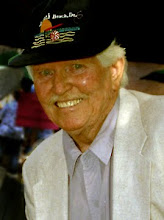Summing up his life, Robert Gover says, “I was born with the proverbial silver spoon; had it yanked out before my first birthday; grew up in an orphanage; went to college on athletic scholarship; became a rich and famous novelist in my 30s; was blacklisted in my 40s; broke, homeless and addicted in my 50s; rejuvenated and remarried in my 60s; writing again by 70.”
Gover’s interest in the economy and money was stimulated while he was at the University of Pittsburgh during the 1950s. He’d chosen Pitt because of its highly ranked writing program. He took courses in economics because he viewed that subject as what could tie his creative writing together, giving it one overriding theme. He became so interested in economics that he graduated with a Bachelors degree in it.
Gover then worked for newspapers in Western Pennsylvania and Maryland for the next six years, with one year out to do corporate public relations. By 1960, his first novel, One Hundred Dollar Misunderstanding, had been accepted for publication (in translation) by Le Table Ronde Editions of Paris, after being roundly rejected in the USA. It was feared by American publishers because it dealt with miscegenation, a subject which was taboo in all the USA back then and outlawed in many states. Robert's first novel was a big hit in France.
His interest in race relations began as a child when he visited the farm in Kentucky where his father had grown up. His playmate there was a black boy named Robert Gover. This stimulated Robert’s interest in the history of slavery. He leaned from his grandmother that, although he appears to be of Irish descent, he also has Native American in his genealogy and quite possibly African too, since his forefathers had owned slaves for two-hundred some years before the Civil War.
Robert’s father came to Philadelphia in the 1920s to study medicine at Hahnemann Medical College. He graduated top of his class and was on his way to study neurological surgery at the Mayo Clinic in Minnesota when he was killed in an auto accident. Robert was 11 months old at the time and took his first steps at his father’s funeral.
Robert grew up in Girard College, a “home and school for poor, white, male orphans” in the 1930s and 1940s. Before Social Security, children who had lost fathers were classified as orphans. Under the tutelage of an exceptional swimming coach, Girard’s high school team won the Eastern States High School Championship in 1947. Robert swam the butterfly while it was still part of the breaststroke event.
By 1962, his first novel had been accepted for publication in the USA. The first American edition put out by Grove Press became a surprise bestseller during a New York citywide strike by the printers union, shutting down newspapers and blacking out book advertisements.
Robert has written 10 novels. His fifth, Poorboy at the Party, was featured on the cover of Publishers Weekly Magazine in 1967, indicating it was to become a number 1 bestseller—but shortly thereafter his editor disappeared and the first printing was cut by 95%, effectively killing sales of this novel.
Robert became interested in astrology while living in Southern California during the middle 1960s, at first as something he was skeptical about, and eventually as the best way to predict future economic conditions.
“It seems to be my destiny,” he says, “to become fascinated by shunned or esoteric subjects—miscegenation, pantheism, the history of money and economics, and astrology. My main interest now is the historic correlation between economic and planetary cycles, and what they suggest for the future of our economy.”

No comments:
Post a Comment
Note: Only a member of this blog may post a comment.